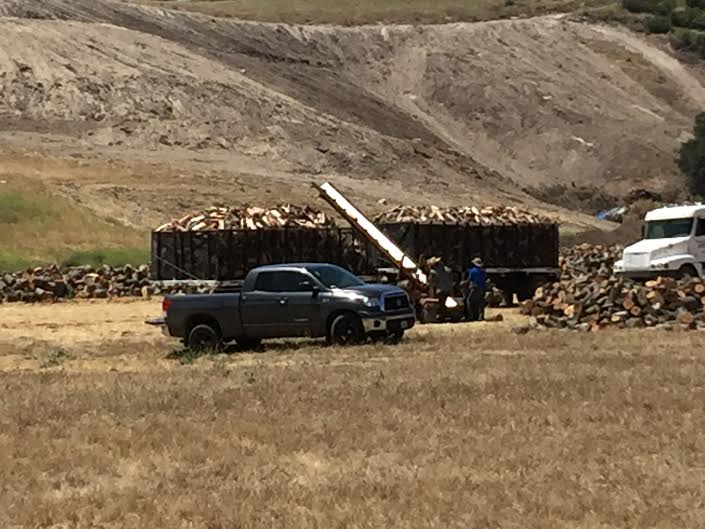SLO County Supervisors approve oak tree and reservoir ordinances
July 16, 2016
While all five members of the San Luis Obispo County Board of Supervisors where in favor of implementing ordinances to protect the clear cutting of oak trees and the county’s underground water resources, supervisors disagreed over the best way to move forward. In the end, the board voted to implement two 45 day urgency ordinances.
Since Stewart and Lynda Resnick bought Justin Vineyards in 2010, they have cut down thousands of oak trees from properties they purchased in the North County. After aerial photos of the tree removal where released, residents voiced their outrage.
Property owners have also voiced their concerns with Justin Vineyards using underground water sources to fill large reservoirs during a drought.
During Tuesday’s board meeting, Supervisor Bruce Gibson pushed for an ordinance that would require the county to verify oak trees were diseased before a property owner could remove the tree. Supervisor Debbie Arnold, who first approached county staff to draft an ordinance to protect the oaks, argued that Gibson’s request would be costly and burdensome to both the county and land owners.
Because of the drought, local landowners have had to deal with large numbers of distressed or diseased trees. The temporary ordinance requires property owners to provide proof of disease after the tree is removed.
After a contentious discussion, the board voted 4-1 for an urgency ordinance that requires land owners who want to remove more than 10 percent of a tree canopy to get a conditional use permit. Those wishing to remove less than 10 percent, would need a minor use permit.
Arnold voiced concerns that rangeland was not differentiated from agricultural land. Several ranchers spoke of the need to manage their property, which includes removing trees which have not survived the drought.
Arnold voted against the urgency ordinance.
“I am disappointed I could not join my colleagues in supporting the Native Tree Interim Zoning/Urgency Ordinance today,” Arnold said. “I believe the urgent matter is the clear cutting of land being converted from rangeland to intensified farming. While I support a regulation to address the clear cutting of native oaks, in my opinion, this ordinance went too far in the requirements placed on owners of rangeland properties.”
Supervisor Lynn Compton also voiced concerns over the impact the urgency ordinance on those managing their property, but voted yes because of the temporary nature of the ordinance.
“Yes,” Compton voted. “But I will not support this as a permanent easement.”
Later in the afternoon, the supervisors voted unanimously, after gutting most of staff’s recommendations, to approve an ordinance that requires reservoir approvals to go through a county permit process.
Both ordinances will be in place for 45 days with an option for the Board of Supervisors to extend the temporary ordinances for up to two years.
“I will continue to work with staff and my colleagues to craft a permanent ordinance that protects our native oaks without punishing good stewards of the land,” Arnold said.







The comments below represent the opinion of the writer and do not represent the views or policies of CalCoastNews.com. Please address the Policies, events and arguments, not the person. Constructive debate is good; mockery, taunting, and name calling is not. Comment Guidelines